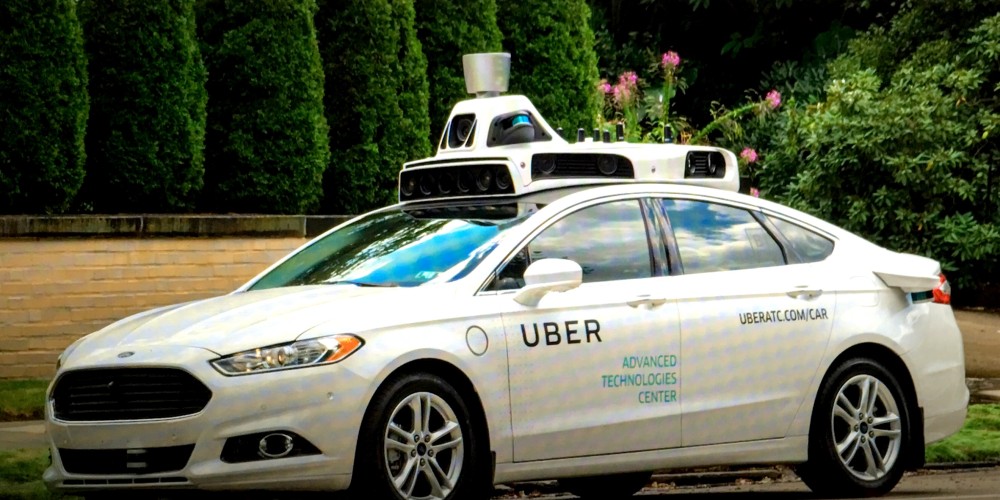You can’t resist an idea when its time comes

Two years ago I wrote on this page about Uber, the taxi-hailing app that has taken the world by storm. At the time, Uber had not entered these shores. It did so shortly after, and as predicted, overran the local taxi industry.
One year ago I wrote that it was time to start thinking about self-driving cars. The idea that most vehicles in the world may become autonomous and not need a human driver still seems bizarre and unrealistic to some. I don’t really know why.
It is true: a year ago I, too, had not anticipated quite how fast self-driving technology would hit ordinary roads. Lo and behold, it’s already happened. A few weeks ago, Singapore announced the first-ever public trial of self-driving taxis, in partnership with startup NuTonomy. Uber itself launched a similar trial in Pittsburgh, USA. Self-driving cars are real, and they’re here.
Singapore hopes to have a fully self-driven fleet of taxis on its streets as early as 2018. Dubai is pushing ahead with its own plans: it announced that by 2030 twenty-five per cent of all trips on its roads will be done by driverless vehicles. And in the US, the federal government has just issued new guidelines telling automakers, suppliers and tech firms what’s expected as they develop and deploy automated vehicle technologies.
Whenever I discuss this topic, there’s a huge amount of resistance and scepticism. This stuff is too dangerous, people say: I’d never get into a car without a driver. The technology would never cope with emerging-market conditions, others chime in: our chaotic and disorderly driving and potholes would confuse any self-driving car to a standstill.
The resistance is not at all surprising. Whenever people are confronted with a radically different technology from the one they are used to, they recoil in fear. But imagine what it might have been like when the first car was introduced, to replace the horse-drawn cart. Do you think everyone jumped on board without hesitation? Recall Henry Ford’s famous remark about his pioneer car: “If I had asked people what they wanted, they would have said ‘faster horses.’”
Interestingly, a century later, the vehicles being used in the Uber self-driving trial are Fords…
The car had huge advantages over the horse, so its rise was inevitable. The self-driven car has similar advantages. Consider that up to 80 per cent of the cost of a taxi ride comes from the human being behind the wheel. Consider the effect on pollution of replacing our ghastly gas-guzzlers with electric vehicles. Consider the impact on congestion when one vehicle can do ten times the number of rides a human-driven car can in a day, and its rides can be optimised by algorithm. Consider that most of us sit inside an aeroplane, which is on autopilot for much of the trip, without fear. Consider finally that nine out of ten road accidents are caused by human error.
Is the point made? The change will be inevitable. It’s a question of when, not if. Please also don’t make the mistake of thinking self-driven cars will fail because they will be foisted on today’s system. The entire system will change. Road signage and quality, sensor technology, legal requirements, safety controls – all will evolve together. The economic case is too strong. There is a reason every major car manufacturer is moving its strategy towards autonomy and artificial intelligence. The bell is tolling. Certainly, the world is far from ready right now. Reversals will occur, but they will be temporary.
Before we get there, however, there are many smaller changes to come even as humans are still driving taxis. Consider UberPOOL, which allows up to four strangers to commute together in the same taxi for a lower price, with an algorithm optimising the route. It isn’t in Nairobi yet, but it is no doubt coming. In Indian cities where it is being used, a quarter of all Uber trips get taken on UberPOOL.
Ride in a cab with strangers? Nope, you say? But what do our matatu commuters do every day? When Uber and others offer a cleaner, safer, more comfortable alternative, what do you think will happen? The matatu industry also has a lot to think about. The world of transportation is changing dramatically quickly, and many need to move on to new skill sets, new business models – or just quit altogether. Let’s agree to meet here after a year to discuss what happened.
(Sunday Nation, 9 October 2016)

Buy Sunny Bindra's new book
The X in CX
here »
Popular Posts
- Make this your year of being boringJanuary 4, 2026
- My books of the yearDecember 14, 2025
- Confessions of an explaining personDecember 7, 2025
- Here’s why you should become foolishNovember 30, 2025
- How to listen, really listenNovember 16, 2025















